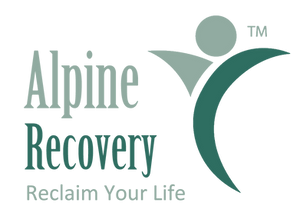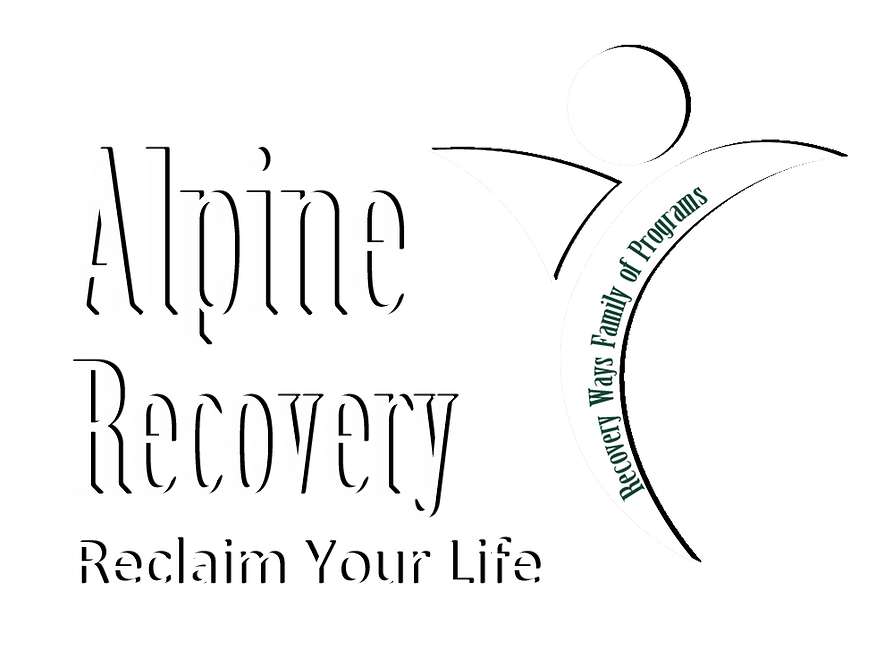
Healing from Within: Addiction Recovery
At Alpine Recovery, the journey to sobriety begins with a holistic approach that heals the mind, body, and spirit, recognizing the complex nature of addiction. The serene setting of our facility provides the perfect backdrop for individuals to embark on this transformative journey. Our programs incorporate mindfulness and meditation techniques, fostering a sense of inner calm and self-awareness among our clients.
We believe that recovery is not just about abstaining from substances but about nurturing a healthier lifestyle. Our programs include tailored exercise regimes that help rebuild physical strength and improve mental clarity. Yoga, outdoor activities, and fitness classes are integral to the therapy process, promoting overall wellness and vitality.
Holistic care plays a significant role at Alpine Recovery, where therapies such as acupuncture and nutritional counseling complement traditional treatment methods. By addressing physical health through balanced nutrition and alternative therapies, our clients experience enhanced recovery outcomes and a better quality of life.
Personalized Care
Every individual who seeks support at Alpine Recovery is treated as a unique person with their own history, challenges, and aspirations. Our process begins with a thorough assessment that enables our team to create a treatment plan tailored to each client’s specific needs. This personalized care ensures that every individual receives the most appropriate and effective strategies for their recovery.
The importance of individualized attention cannot be overstated when it comes to addressing substance dependency. Our professional staff, including licensed therapists and certified counselors, work closely with each client to modify treatment plans as they progress in their recovery. This adaptability helps maintain momentum and address any emerging challenges that may arise during the course of treatment.
Strong Community Support
Building a strong sense of community is central to the success of our programs at Alpine Recovery. We recognize that the journey to recovery can be isolating and challenging, which is why fostering connections between clients is vital. Group therapy sessions provide a safe and supportive space where individuals can share their experiences and learn from one another, cultivating empathy and understanding.
Our peer support groups at Alpine Recovery offer ongoing encouragement and motivation. Clients can connect with individuals who have faced similar struggles and have emerged stronger, providing hope and inspiration. This sense of belonging boosts confidence and helps individuals stay committed to their recovery goals.
Experienced Professionals
Our Standwood drug rehab boasts a team of dedicated and experienced professionals who are passionate about helping clients overcome addiction. Our staff comprises licensed therapists, certified addiction counselors, and seasoned healthcare providers, all of whom bring a wealth of knowledge and expertise to the recovery process.
Our professionals are committed to staying abreast of the latest developments in addiction science and therapeutic practices. By engaging in continuous education and training, our team ensures that clients receive the most cutting-edge treatments available. This dedication to professional growth translates to a higher standard of care and better outcomes for those we serve.
Comprehensive Treatment Options
Alpine Recovery offers a broad range of treatment options designed to address various stages and aspects of addiction recovery. Our programs include both inpatient and outpatient services, allowing clients to choose the level of care that best suits their situation and lifestyle. This flexibility is crucial for accommodating different needs and preferences.
Detoxification is the first step for many clients at our facility, providing a safe and structured environment for individuals to begin their journey to sobriety. Our medically supervised detox programs ensure that clients are comfortable and supported throughout this challenging phase. Following detox, clients engage in individual and group therapy sessions that address the underlying causes of addiction and develop coping strategies for the future.
For those transitioning back to daily life, Alpine Recovery’s aftercare planning provides the necessary support to prevent relapse. Ongoing counseling, peer support groups, and educational resources equip clients with the tools they need to maintain their sobriety and continue their personal growth.
Integrating Family in the Healing Process
Acknowledging that addiction often impacts not just the individual but their loved ones as well, Alpine Recovery emphasizes the involvement of family in the recovery journey. Family counseling sessions provide an opportunity for open communication and healing, addressing any fractured relationships and fostering understanding.
Our educational workshops for families offer insights into the nature of addiction, helping them to support their loved one’s recovery more effectively. These sessions provide a platform for families to express their concerns, ask questions, and learn how to create a supportive home environment that promotes lasting sobriety.
Involvement of family and loved ones in the recovery process enhances accountability and motivation. At Alpine Recovery, we believe that a strong support network is a key component of successful recovery, helping individuals to rebuild trust and repair relationships damaged by addiction.
Setting Goals for Sustained Recovery
Goal setting is an essential part of the recovery process at Alpine Recovery. Our team works with clients to establish realistic and achievable goals that serve as milestones on their journey to sobriety. By identifying personal aspirations and mapping out a clear path to achieving them, clients build a sense of purpose and direction.
We emphasize the importance of celebrating small victories along the way, as these boost confidence and reinforce commitment to the recovery process. Regular progress evaluations enable clients to reflect on their achievements and adjust their goals as necessary, maintaining motivation and focus.
Through workshops and one-on-one sessions, clients learn practical skills for goal setting and time management, empowering them to take control of their lives. Whether it’s returning to work, pursuing education, or restoring relationships, our programs are designed to support individuals as they strive for long-term success.
Embracing New Lifestyles
Transitioning from a life dominated by addiction to one filled with health, happiness, and fulfillment is a journey that involves significant lifestyle changes. At Alpine Recovery, we provide clients with the skills and knowledge they need to embrace new and positive habits that support their recovery.
Our comprehensive educational programs cover topics such as nutrition, stress management, and self-care, equipping individuals with the tools to nurture their well-being. Clients learn how to prioritize their health and make informed decisions that align with their recovery goals.
Creative outlets and hobbies are encouraged as part of the recovery process, allowing individuals to explore new interests and develop positive coping mechanisms. Whether it’s art therapy, music, or writing, these activities provide a healthy outlet for self-expression and contribute to overall emotional and mental health.
Navigating Challenges on the Road to Recovery
The path to recovery is not without its challenges, and it’s important to acknowledge and prepare for potential obstacles. Alpine Recovery equips clients with the skills and strategies needed to navigate these challenges successfully, ensuring they remain equipped to handle setbacks and continue moving forward.
Understanding common triggers and early warning signs of relapse is crucial for long-term success. Our therapy sessions focus on identifying these triggers and developing personalized coping strategies that empower clients to make positive choices. By practicing mindfulness and resilience, clients learn how to respond to stressors without resorting to substance use.
Our alumni network provides ongoing support and connection for those who have completed their treatment programs. This community offers a platform for individuals to share experiences, seek advice, and maintain accountability, reinforcing the strength and commitment needed to stay sober.

How many days do you get in rehab?
The duration of a rehab program can vary greatly depending on the individual’s needs and the facility’s offerings. At Alpine Recovery, we typically offer programs that range from 30 to 90 days, although some individuals may benefit from an extended stay. The key is to customize the length of treatment to suit the client’s progress and specific circumstances. When considering the duration, it’s essential to think about the severity of addiction, any co-occurring mental health conditions, and the individual’s support system outside of rehab. The goal is to ensure that each person receives the time and support they need for a successful recovery.
Do you have to pay for drug rehabilitation?
Yes, drug rehabilitation services typically come with associated costs, but the good news is that there are various options for covering these expenses. Many insurance plans offer some level of coverage for substance abuse treatment, and Alpine Recovery works with numerous providers to facilitate this process. Additionally, there are scholarships, grants, and sliding scale fee options available for those who qualify. It’s crucial to contact the facility directly and discuss financial options, as investing in recovery can significantly improve one’s quality of life.
What are the three options for drug abuse treatment?
The three primary options for drug abuse treatment include inpatient treatment, outpatient treatment, and aftercare programs. Inpatient treatment provides a structured environment where individuals can focus solely on their recovery without distractions. Outpatient treatment offers flexibility, allowing individuals to continue with their daily responsibilities while attending therapy sessions. Finally, aftercare programs provide ongoing support to help individuals maintain sobriety long-term. At Alpine Recovery, these options are thoughtfully integrated to create a comprehensive treatment plan tailored to the client’s needs.
What is the recovery rate of rehab?
Recovery rates can vary depending on numerous factors, such as the type of substance, the individual’s background, and the quality of the treatment program. While exact figures can be hard to pinpoint, studies suggest that effective rehab programs, like those at Alpine Recovery, can significantly increase the chances of long-term sobriety. Success is often defined by the individual’s ability to remain substance-free, manage their mental health, and reintegrate into society productively. Recovery is a personal journey, and our focus is on providing the necessary tools and support for sustainable sobriety.
How does family involvement affect recovery outcomes?
Family involvement can significantly enhance recovery outcomes by providing an additional layer of support and accountability. At Alpine Recovery, we emphasize family integration in the recovery process because it helps mend strained relationships and rebuild trust. Through family counseling and educational workshops, members learn about addiction and how best to support their loved ones. This unified front can be powerful in motivating individuals to stay committed to their recovery journey. Family involvement not only aids the individual but can also begin to heal the family unit as a whole.
What role does holistic care play in recovery?
Holistic care is pivotal in addressing the whole person, not just the addiction symptoms. At Alpine Recovery, holistic treatments such as mindfulness practices, nutrition education, and exercise programs are integrated into the recovery process. These approaches help improve physical health, enhance emotional well-being, and foster spiritual growth. By promoting a balanced lifestyle, clients are equipped with healthy coping mechanisms and a stronger sense of self-awareness. This comprehensive care model aims to sustain long-term recovery by encouraging lifestyle changes that support overall wellness.
How important is community support in recovery?
Community support is absolutely vital to the recovery process. At Alpine Recovery, we foster a sense of belonging among our clients through group therapy and peer support groups. These connections provide emotional support and shared experiences that can be incredibly reassuring. Knowing that others are navigating similar challenges helps reduce feelings of isolation and boosts one’s commitment to sobriety. Furthermore, the alumni network offers long-term support, ensuring that individuals continue to receive the encouragement they need post-treatment. Community support strengthens resilience and promotes sustained recovery.
Resources
- Substance Abuse and Mental Health Services Administration – The Substance Abuse and Mental Health Services Administration (SAMHSA) is the leading agency within the U.S. Department of Health and Human Services working to reduce the impact of substance abuse and mental illness on America’s communities.
- National Institute on Drug Abuse – The National Institute on Drug Abuse (NIDA) is a federal scientific research institute under the National Institutes of Health, focusing on drug abuse and addiction research.
- Alcoholics Anonymous – Alcoholics Anonymous is an international mutual aid fellowship that aims to help individuals recover from alcoholism.
- National Alliance on Mental Illness – The National Alliance on Mental Illness is a U.S.-based advocacy group representing individuals and families affected by mental illness.
- American Psychological Association – The American Psychological Association is the largest scientific and professional organization of psychologists in the United States, with a focus on promoting the advancement of psychology.


